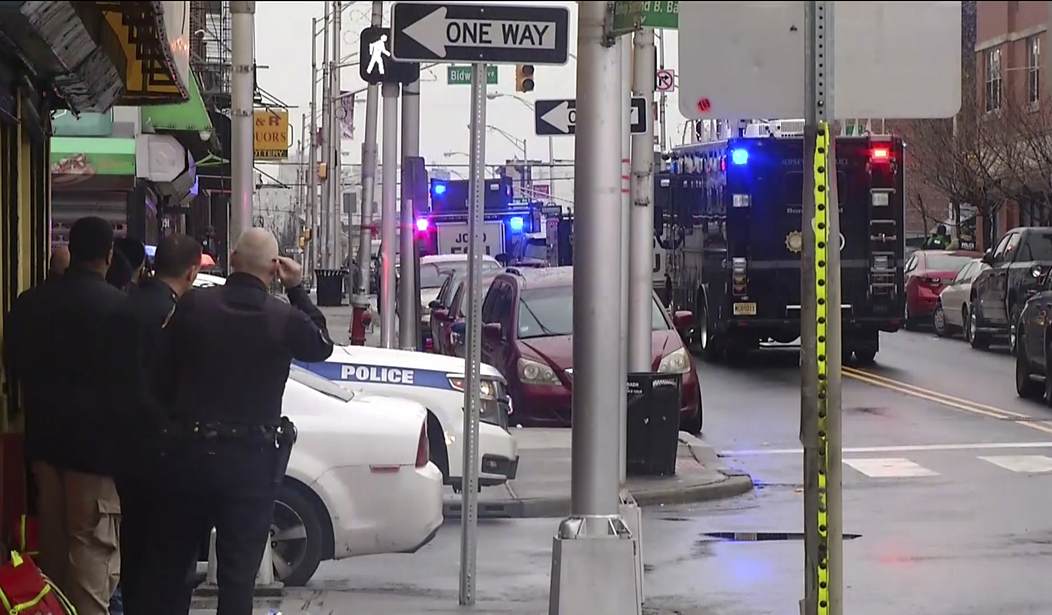A new report out by the Giffords Law Center to Prevent Gun Violence suggests that mistrust of police is a major driver of violent crime, and their conclusions don’t bode well for the types of gun control laws that Giffords and other groups want to impose on the American people.
From The Guardian:
In many American communities, acts of police brutality, over-enforcement targeting small infractions and high numbers of unsolved shootings and homicides have eroded trust, making residents less likely to place their trust in law enforcement and more likely to seek vigilante justice, the researchers note.
“Everybody has largely missed the fact that if people can’t count on help from the state and its agents, they’re going to take care of themselves,” says David Kennedy, the director of the National Network for Safe Communities, a violence reduction research center, whose work is referenced throughout the report. “Sometimes taking care of yourself looks like day-to-day gun violence.”
The claim by Giffords is nothing groundbreaking. In fact, Jill Leovy’s 2015 book Ghettoside: A True Story of Murder In America is a vivid portrayal of how that mistrust of police plays out in high crime neighborhoods in Los Angeles.
Ironically though, the Giffords researchers seem to have missed one obvious conclusion: over-enforcement for small infractions includes over-enforcement of their preferred gun control laws. In New York State, for instance, the vast majority of SAFE Act prosecutions are for crimes that were previously misdemeanors, but are now felonies, like simply possessing a gun without a license. In fact, as the Democrat & Chronicle newspaper reported back in 2016, more than 80% of all SAFE Act charges were for simple possessory offenses.
Ari Freilich of Giffords says that the mistrust of police leads to a lack of cooperation among witnesses, which makes it harder to solve homicides.
“We hear about disproportionate impact and it’s important to speak clearly about how that’s a racial injustice,” says Ari Freilich, a lead author of the report and policy director at Giffords. “That number would be unheard of in every high-income country in the world.”
Most homicides are perpetrated by a very small percentage of the population, often known to law enforcement. Street groups involved in violence constitute on average less than 0.6% of a city’s population, with an even smaller percentage of that group actually perpetrating violent crimes.
And yet in communities across the country, including some of those hardest hit by gun violence, researchers documented a concerning combination of distrust in law enforcement, underreporting of crimes, declines in witness cooperation and engagement with officers, less informed policing, unsolved murders and spikes in violence.
What Freilich fails to acknowledge is that enforcement of his preferred gun control laws is helping to fuel that distrust in law enforcement. If police are seen as putting a higher priority on arrests for things like possessing a gun without a license, violating “high capacity” magazine bans, and other possessory crimes instead of putting an emphasis on solving murders and focusing on the most violent offenders, it only fosters the narrative that law enforcement is simply looking to create statistics, not solve crimes.
“So much of what isn’t working about traditional policing is built on myths and leads to policies that treat whole communities as part of the problem rather than victims, witnesses and the solution to violence,” says Freilich.
No kidding? And what do your gun control laws do, Ari? Seems to me that treat whole communities as part of the problem rather than victims, witnesses, and the solution to violence. In fact, it’s a fundamental part of the gun control movement to see ALL gun owners as a problem, which is why their proposed policy solutions inevitably target legal gun owners with new restrictions.
If Giffords stands by this report, they absolutely need to re-evaluate their entire agenda, because its hurting, not helping, the cause of increasing trust and working relationships between officers and the communities they serve. For some reason though, I don’t see that happening any time soon.







Join the conversation as a VIP Member